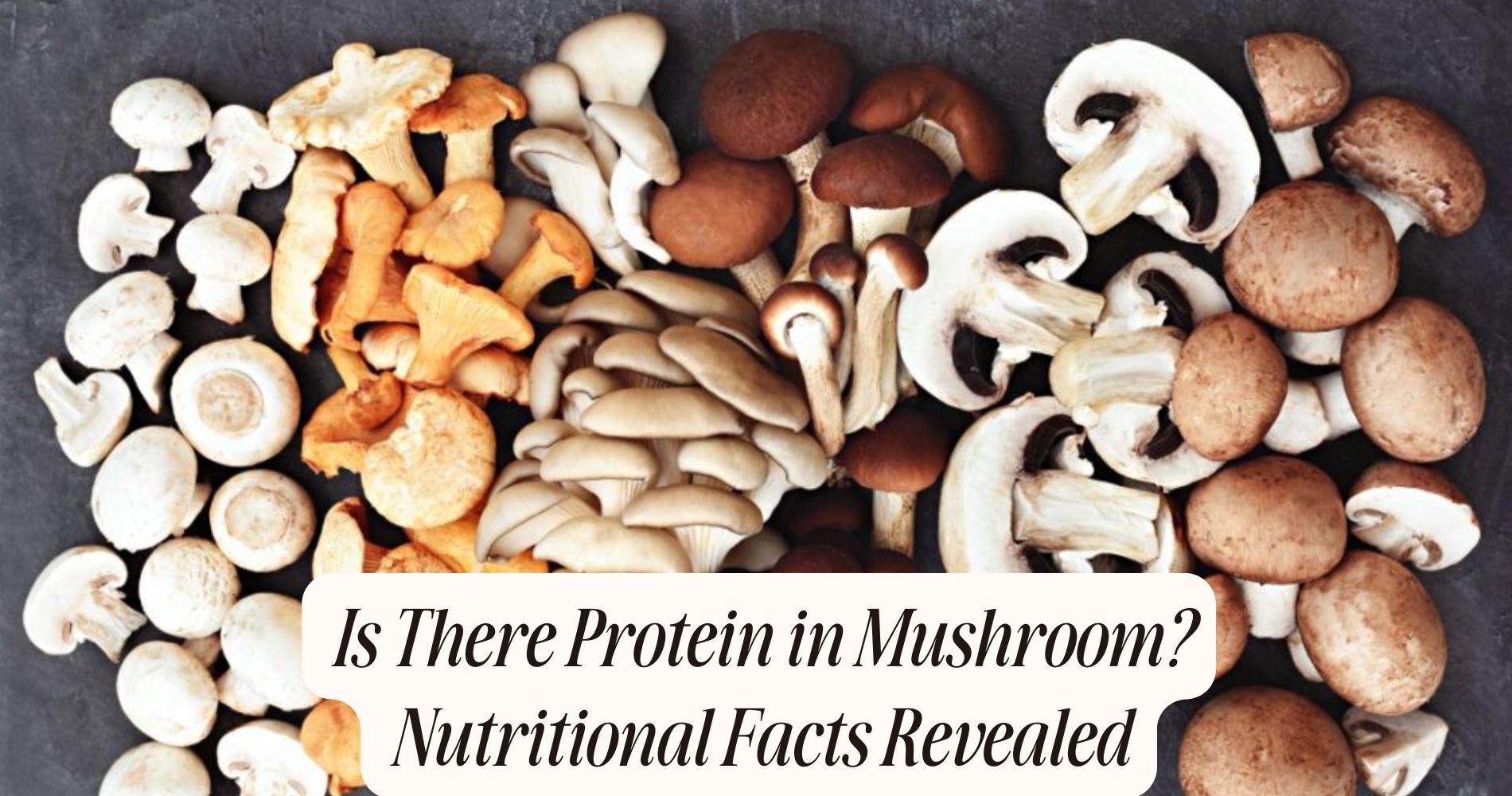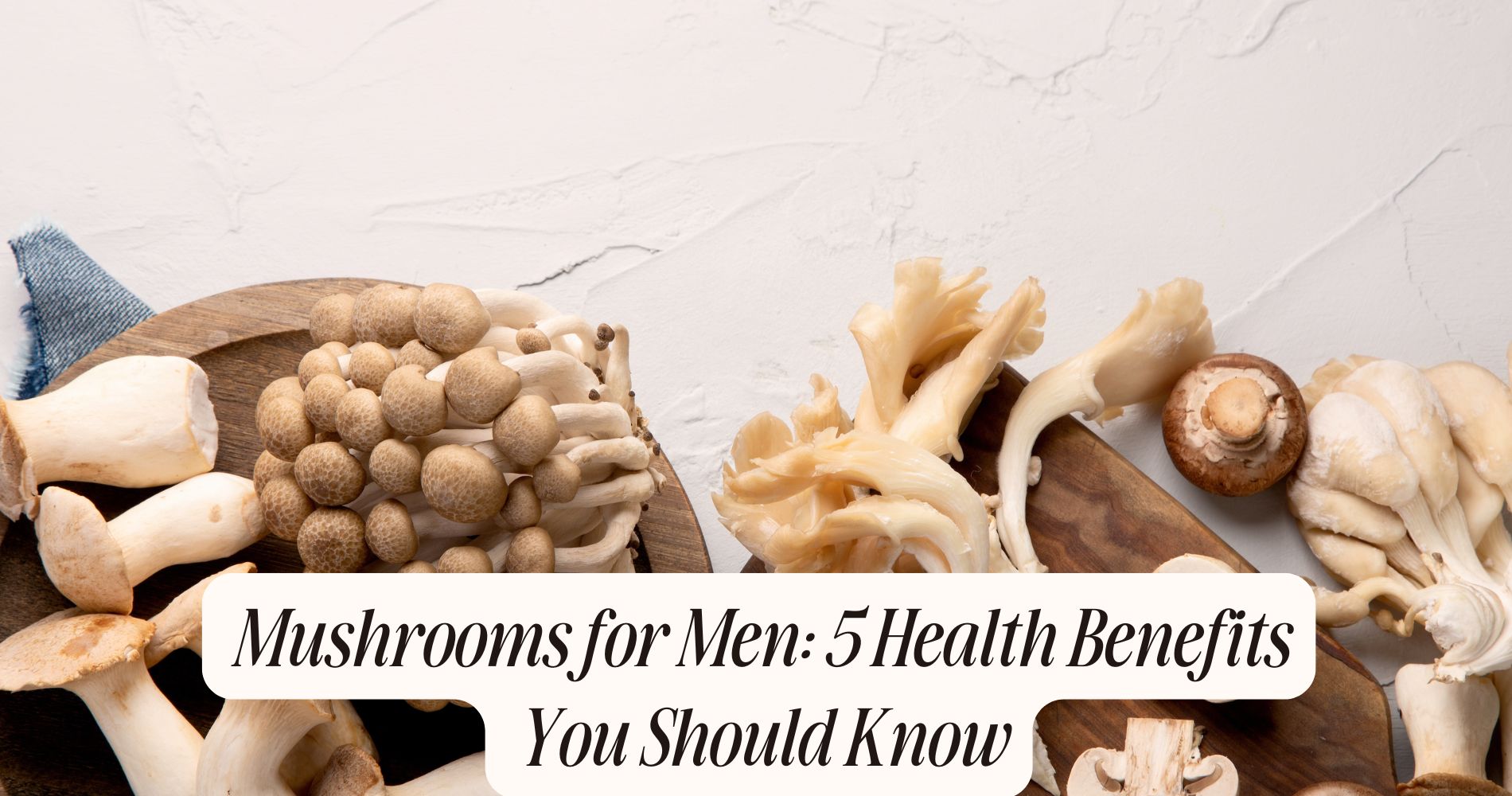
Is There Protein in Mushroom? Nutritional Facts Revealed
Is there protein in mushroom? Yes, mushrooms contain protein, though not as much as meat. Varieties like oyster mushrooms offer about 3.3 grams of protein per 100 grams. Mushrooms also provide essential amino acids, vitamins, and minerals, making them a nutritious addition to your diet. Beyond just protein, they possess antioxidant properties and can support gut health and immunity. By incorporating different mushrooms into your meals, you can enhance both flavor and nutrition. There's more to explore about mushrooms' health benefits.
Understanding Protein in Mushrooms
Although many people associate protein primarily with animal products, mushrooms offer a surprising alternative that deserves attention. These fungi contain various protein sources, making them an excellent addition to a balanced diet.
Different mushroom varieties, such as shiitake, portobello, and oyster, present distinct amino acid profiles, enhancing your nutrient intake. The protein in mushrooms is typically considered lower in quantity compared to meat; however, it provides essential amino acids that contribute to muscle repair and overall health.

Additionally, mushrooms are low in calories and high in fiber, making them an appealing option for those seeking to maintain a healthy weight. Including diverse mushroom varieties in your meals not only boosts protein intake but also adds unique flavors and textures to your dishes.
Comparing Protein Content in Different Mushroom Varieties
When you explore the protein content in various mushroom varieties, you'll find significant differences that can influence your dietary choices.
For instance, shiitake mushrooms contain about 2.2 grams of protein per 100 grams, while portobello mushrooms offer around 2.5 grams. In contrast, white button mushrooms provide approximately 3 grams of protein per 100 grams, showcasing their higher protein content.

A protein comparison shows that oyster mushrooms, at about 3.3 grams, edge out many common varieties.
These variations highlight the importance of selecting the right mushrooms to meet your protein needs. Incorporating a mix of mushroom varieties into your meals can enhance both flavor and nutritional value, ensuring you're not only enjoying their taste but also benefiting from their protein contributions.
Nutritional Benefits Beyond Protein
While many people focus on the protein content of mushrooms, their nutritional benefits extend far beyond just this macronutrient.
Mushrooms are packed with essential vitamins and minerals, including B vitamins and selenium, which play significant roles in energy production and antioxidant defense. Their antioxidant properties help combat oxidative stress, reducing the risk of chronic diseases.
Additionally, mushrooms provide immune support through beta-glucans, which enhance your body's immune response. Studies have shown that regular consumption of mushrooms may boost overall health by lowering inflammation and improving gut health.
How Mushrooms Fit Into a Protein-Rich Diet
Mushrooms can play a valuable role in a protein-rich diet, offering a unique combination of nourishment that supports overall health. While they aren't the primary protein sources, certain mushroom varieties, like shiitake and portobello, contain notable amounts of protein, making them beneficial additions to your meals.

Incorporating these mushrooms into your diet can enhance the overall protein content when paired with other protein-rich foods like legumes or grains. Additionally, their rich array of vitamins and minerals complements the protein, promoting better absorption and utilization in your body.
Cooking Tips to Maximize Nutritional Value
To maximize the nutritional value of mushrooms in your cooking, focus on techniques that preserve their delicate nutrients and enhance their flavors.
One effective method is using sautéing techniques, which involve cooking mushrooms quickly over medium heat with a small amount of healthy oil. This method not only retains moisture but also helps to intensify their natural umami flavor.
Avoid overcooking, as high temperatures can degrade the vitamins and antioxidants present in mushrooms.
Consider adding garlic or herbs during the last few minutes of sautéing for added flavor enhancement without compromising nutritional benefits.
Finally, try incorporating a splash of lemon juice after cooking to brighten the taste while boosting the absorption of nutrients.
Incorporating Mushrooms Into Your Meals
Incorporating mushrooms into your meals can greatly enhance both flavor and nutritional value.
These versatile fungi offer a rich umami taste, making them an excellent addition to various dishes. Consider trying mushroom recipes like stuffed portobellos, which provide a hearty base for grains and vegetables. You can also add sliced mushrooms to omelets or stir-fries for a nutritional boost.
Meal ideas include creamy mushroom risotto or savory mushroom soup, both packed with essential vitamins and minerals. Research shows that mushrooms are low in calories yet rich in protein, making them a smart choice for anyone looking to diversify their diet.
Fuel Your Body with Super Mushroom Gummies
Looking for an easy and delicious way to enjoy the benefits of mushrooms? Try SUPER MUSHROOM GUMMIES by Well Gummies! Packed with 10 functional mushrooms, these vegan-friendly gummies help fuel your brain, boost focus, and support immunity—all in a tasty wild berry flavor. No jitters, no crash—just sustained energy and mental clarity to keep you going all day. Experience the power of mushrooms in the most convenient and enjoyable way. Ready to elevate your wellness? Give SUPER MUSHROOM GUMMIES a try today!
Frequently Asked Questions
Are There Any Allergens Associated With Mushrooms?
Mushroom allergies can occur, leading to allergic reactions in some individuals. Symptoms may include skin rashes, gastrointestinal issues, or respiratory problems. Always consult a healthcare professional if you suspect a mushroom allergy. Stay informed and cautious.
Do Mushrooms Provide Complete Protein Sources?
Mushrooms don't provide complete protein sources, as they lack some essential amino acids. While they offer decent protein quality, you should combine them with other protein-rich foods for a balanced amino acid intake.
How Do Mushrooms Compare to Animal Protein Sources?
When comparing mushroom varieties to animal protein sources, you'll find that mushrooms generally have lower protein content. However, they offer unique nutrients and can complement your diet, especially when combined with higher-protein foods for balance.
Can Mushrooms Aid in Muscle Recovery Post-Exercise?
Mushrooms can aid your post-exercise recovery due to their anti-inflammatory properties and antioxidants. Incorporating them into your diet may enhance muscle repair and overall recovery, providing essential nutrients that support your body's healing processes.
Are There Any Adverse Effects of Eating Too Many Mushrooms?
Eating too many mushrooms can lead to digestive issues and, in some cases, mushroom toxicity. While most mushrooms are safe, overconsumption may cause discomfort or adverse reactions, so moderation is key for healthy digestion.
Conclusion
Incorporating mushrooms into your diet not only boosts protein intake but also provides essential nutrients that enhance overall health. With varying protein content across different varieties, you can easily find options that suit your dietary needs. Beyond protein, mushrooms offer vitamins, minerals, and antioxidants that contribute to a balanced diet. By utilizing cooking tips and creative meal ideas, you can maximize their nutritional value, ensuring you reap the full benefits of these versatile fungi in your everyday meals.




